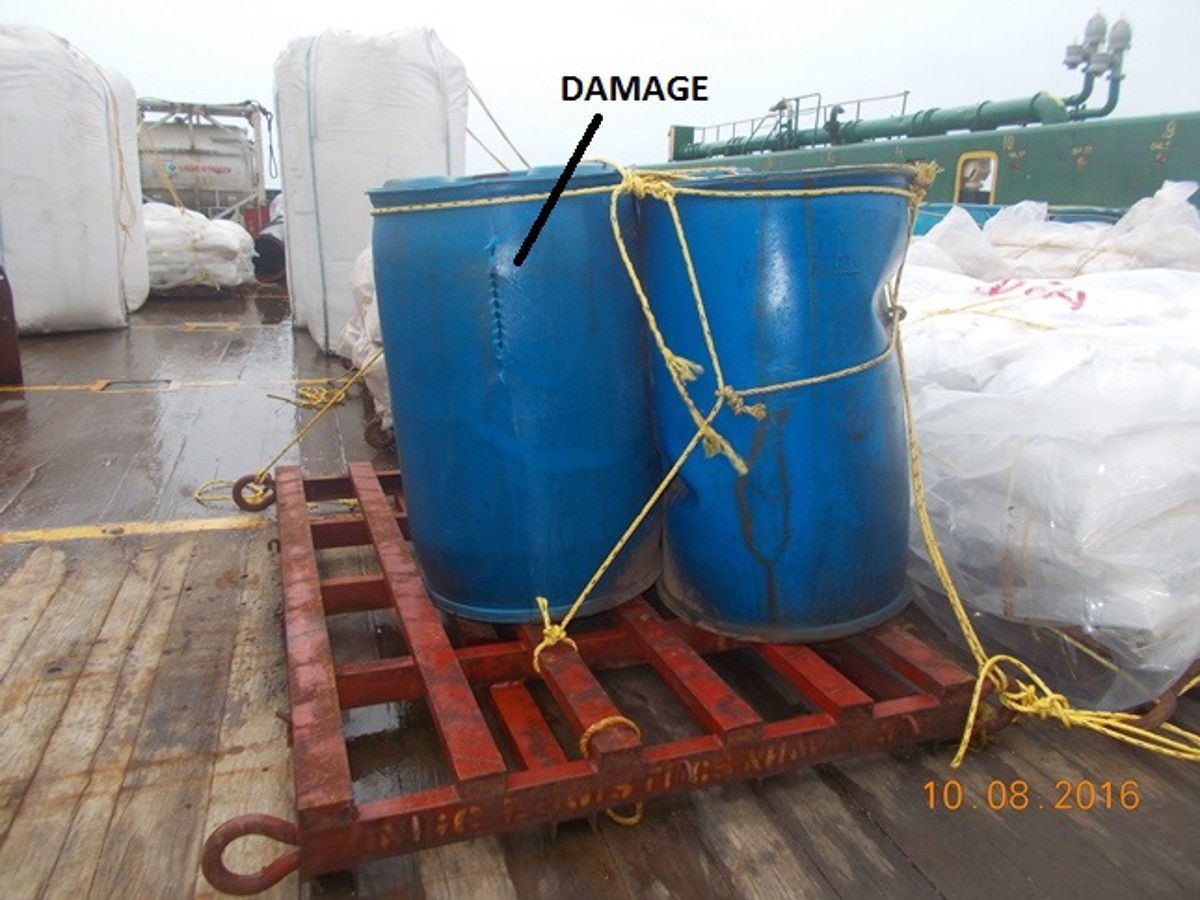Spilt acid during lifting operations
- Safety Flash
- Published on 24 October 2016
- Generated on 20 February 2026
- IMCA SF 29/16
- 2 minute read
Jump to:
A Member has reported an incident in which there was a spillage of acid during lifting operations.
What happened?
The incident occurred during delivery of deck cargo to a jack-up rig. While lifting deck cargo from the supply vessel, the load made contact with one of the plastic drums of acid stowed on the vessel’s deck. This resulted in the drum getting damaged and acid leaked from the drum, but the leak was contained on deck and the area was immediately cleaned. No-one was harmed.

Rolling and pitching of the supply vessel allowed the load being lifted to make contact with the cargo on deck.
Our Member noted the following lessons learned and preventative actions:
- During loading and lifting operations, there should be effective communication and signalling maintained between the rig crane operator and the vessel deck and bridge.
- Risk assessment should have taken into account the weather and sea conditions, and any necessary additional controls if required should be put in place as necessary.
- In case the Master feels that the weather is not favourable for safe operations, then operations should be deferred until the weather improves.
- Consideration should be given to loading hazardous substances such as acid in appropriate drums protected with a cage.
Members may also wish to consult:
Related Safety Flashes
-
IMCA SF 17/16
30 June 2016
-
IMCA SF 21/15
7 December 2015
-
IMCA SF 15/15
13 October 2015
IMCA Safety Flashes summarise key safety matters and incidents, allowing lessons to be more easily learnt for the benefit of the entire offshore industry.
The effectiveness of the IMCA Safety Flash system depends on the industry sharing information and so avoiding repeat incidents. Incidents are classified according to IOGP's Life Saving Rules.
All information is anonymised or sanitised, as appropriate, and warnings for graphic content included where possible.
IMCA makes every effort to ensure both the accuracy and reliability of the information shared, but is not be liable for any guidance and/or recommendation and/or statement herein contained.
The information contained in this document does not fulfil or replace any individual's or Member's legal, regulatory or other duties or obligations in respect of their operations. Individuals and Members remain solely responsible for the safe, lawful and proper conduct of their operations.
Share your safety incidents with IMCA online. Sign-up to receive Safety Flashes straight to your email.